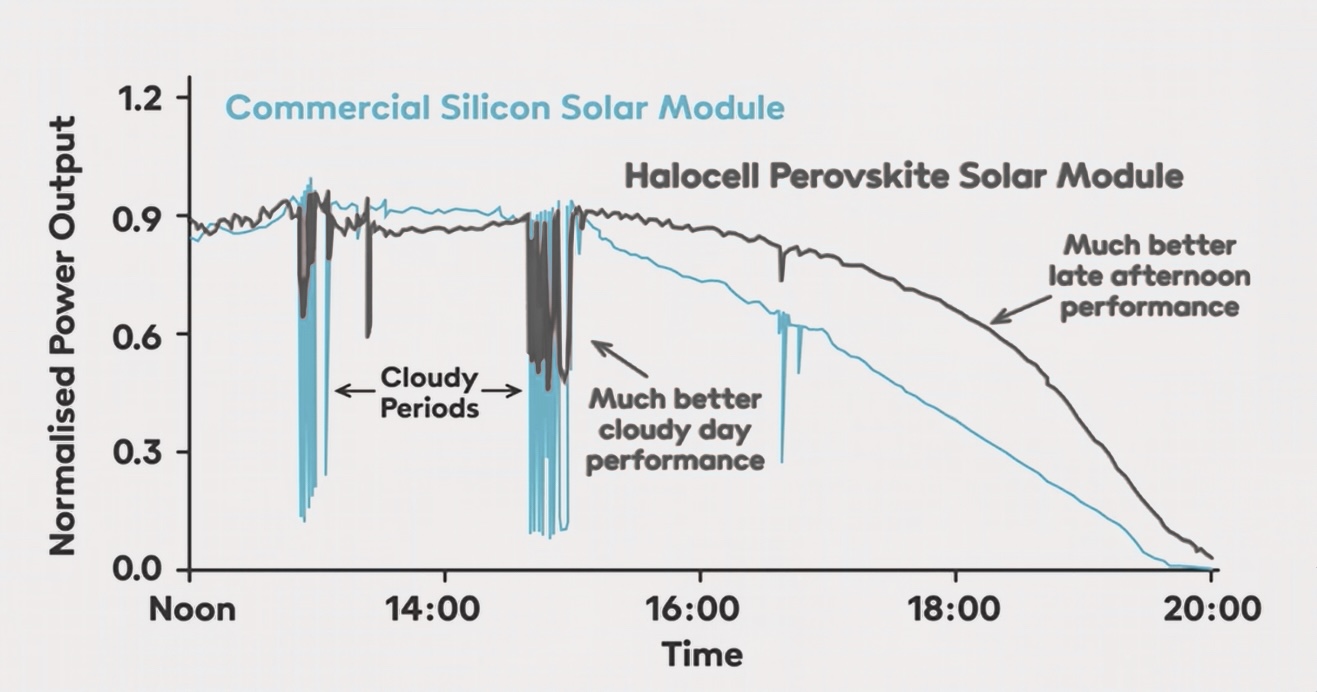Perovskite efficiencies now match silicon in full sun and produce more energy throughout the day, as they continue to generate power from dawn to dusk, and under cloudy conditions. Perovskites are 100x thinner than traditional silicon PVs, flexible, lightweight, and can be made partly transparent. This makes them suitable for a variety of surfaces and structures, where traditional PVs haven’t been viable.
The low-temperature manufacturing process, including roll-to-roll printing, enables perovskites to be produced very efficiently. The low material and energy costs, mean perovskite cells may reach prices three times cheaper than traditional silicon cells. Compared with silicon and other PV technologies, perovskite PVs are better for the environment due to their low-temperature manufacturing process (120°C vs. over 1,000°C for silicon) and the ability of PSC modules to be fully recycled, returining 99% of materials back into the manufacturing process to make new panels.





